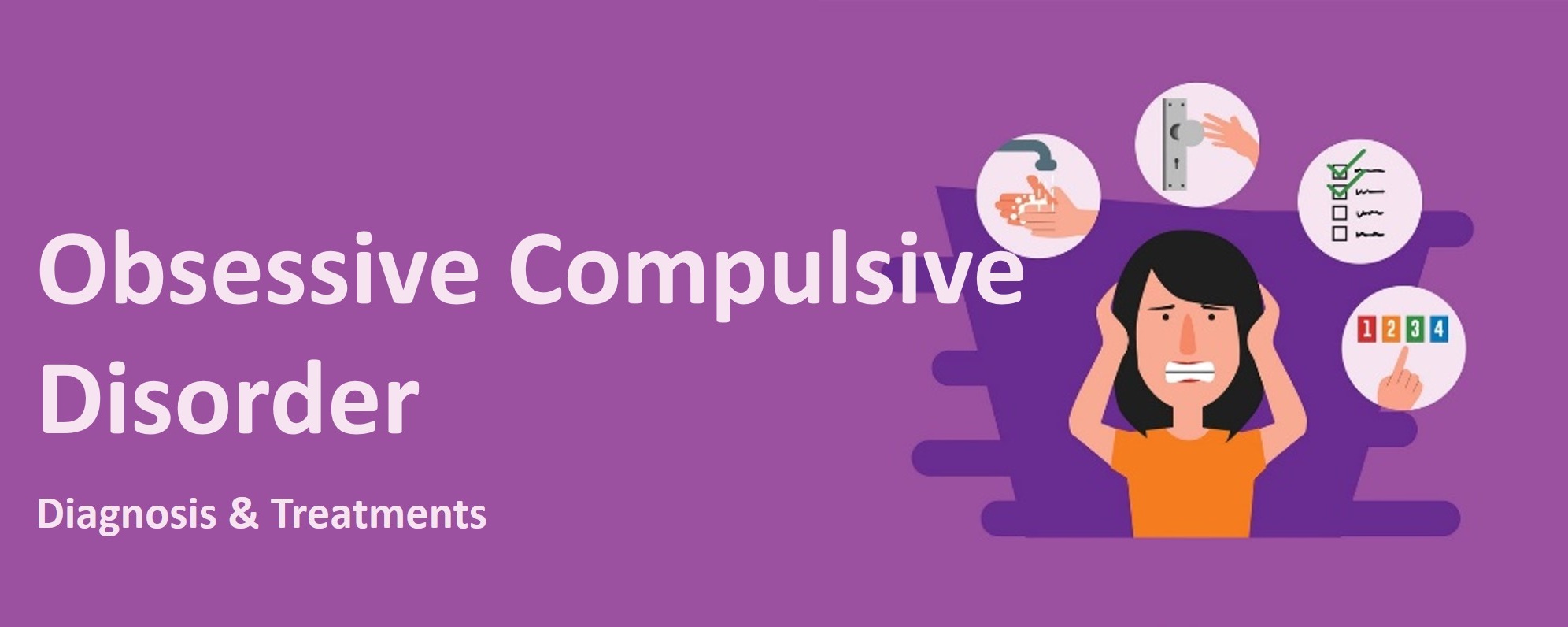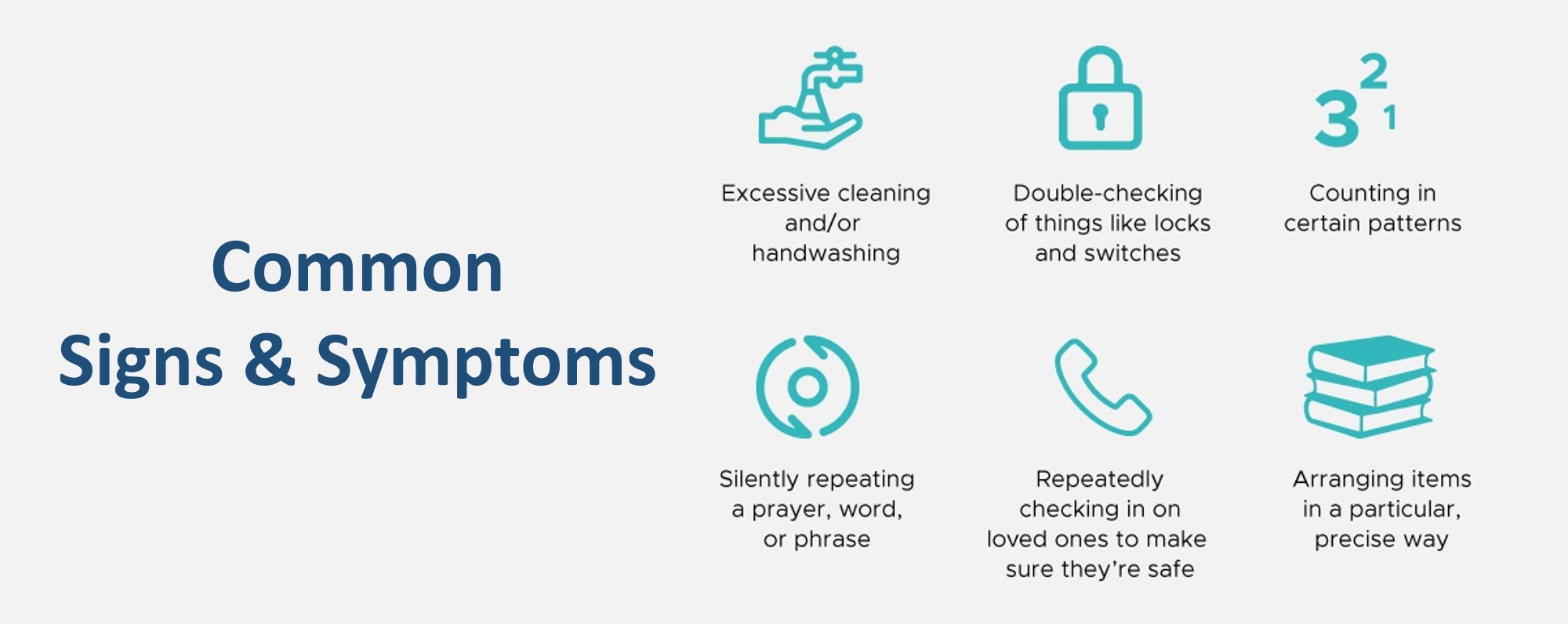Obsessive Compulsive Disorder | Overview, Diagnosis & Treatments

Obsessive-compulsive disorder (OCD) is an anxiety disorder in which people have recurring, unwanted thoughts, ideas or sensations (obsessions) that make them feel driven to do something repetitively (compulsions). The repetitive behaviors, such as hand washing, checking on things or cleaning, can significantly interfere with a person’s daily activities and social interactions.
Many people have focused thoughts or repeated behaviors. But these do not disrupt daily life and may add structure or make tasks easier. For people with OCD, thoughts are persistent and unwanted routines and behaviors are rigid and not doing them causes great distress. Many people with OCD know or suspect their obsessions are not true; others may think they could be true (known as poor insight). Even if they know their obsessions are not true, people with OCD have a hard time keeping their focus off the obsessions or stopping the compulsive actions.
A diagnosis of OCD requires the presence of obsession and/or compulsions that are time-consuming (more than one hour a day), cause major distress, and impair work, social or other important function. OCD often begins in childhood, adolescence or early adulthood.
What are Obsessions?
Obsessions are recurrent and persistent thoughts, impulses, or images that cause distressing emotions such as anxiety or disgust. Many people with OCD recognize that the thoughts, impulses, or images are a product of their mind and are excessive or unreasonable. Yet these intrusive thoughts cannot be settled by logic or reasoning. Most people with OCD try to ignore or suppress such obsessions or offset them with some other thought or action. Typical obsessions include excessive concerns about contamination or harm, the need for symmetry or exactness, or forbidden sexual or religious thoughts.
What are Compulsions?
Compulsions are repetitive behaviors or mental acts that a person feels driven to perform in response to an obsession. The behaviors are aimed at preventing or reducing distress or a feared situation. In the most severe cases, a constant repetition of rituals may fill the day, making a normal routine impossible. Compounding the anguish these rituals cause is the knowledge that the compulsions are irrational. Although the compulsion may bring some relief to the worry, the obsession returns and the cycle repeats over and over.
Some examples of compulsions
Cleaning to reduce the fear that germs, dirt, or chemicals will “contaminate” them some spend many hours washing themselves or cleaning their surroundings. Some people spend many hours washing themselves or cleaning their surroundings.
Repeating to dispel anxiety. Some people utter a name or phrase or repeat a behavior several times. They know these repetitions won’t actually guard against injury but fear harm will occur if the repetitions aren’t done.
Checking to reduce the fear of harming oneself or others by, for example, forgetting to lock the door or turn off the gas stove, some people develop checking rituals. Some people repeatedly retrace driving routes to be sure they haven’t hit anyone.
Ordering and arranging to reduce discomfort. Some people like to put objects, such as books in a certain order, or arrange household items “just so,” or in a symmetric fashion.
Mental compulsions to response to intrusive obsessive thoughts, some people silently pray or say phrases to reduce anxiety or prevent a dreaded future event.
OCD – Common Signs & Symptoms

OCD Treatments
Medication
A class of medications works very effectively in patients of OCD. Patients who do not respond to one medication sometimes respond to another. Noticeable benefit usually takes six to twelve weeks to occur.
Patients with OCD who have received appropriate treatment have shown to have increased quality of life and improved functioning. Successful treatment may improve the individual’s ability to attend school, work, develop and enjoy relationships and pursue leisure activities.
Repetitive transcranial magnetic stimulation (rTMS)
This therapy has been approved by the FDA for the treatment of OCD.
Get more details on rTMS Treatment for OCD in Ahmedabad
Cognitive-Behavioral Therapy
One effective treatment is a type of cognitive-behavioral therapy (CBT) known as exposure and response prevention. This technique works well for patients whose compulsions focus on situations that can be re-created easily.
Cognitive-behavior therapy can help many OCD patients substantially reduce their OCD symptoms. However, treatment only works if patients adhere to the procedures. Some patients will not agree to participate in cognitive-behavioral therapy because of the anxiety it involves. Hence, if the illness has gone beyond mild level, other treatment options should be explored before switching to CBT.
Parth Hospital – For OCD Treatment in Ahmedabad
Parth Hospital is one of the well known OCD treatment hospital in Ahmedabad, offering the best OCD treatments and care services to help patients of all ages suffering. Patients from India as well as abroad have benefitted from Parth Hospital’s treatment for OCD.
With Dr. Parth Goyal & Dr. Priyal Goyal, best doctors for OCD treatment in Ahmedabad, we offer a comprehensive and specific treatment.
Do not delay an appointment with psychiatrist.If your obsessions and compulsions are affecting your quality of life, see your doctor or mental health provider. People with OCD may be ashamed and embarrassed about the condition, but treatment can help.

